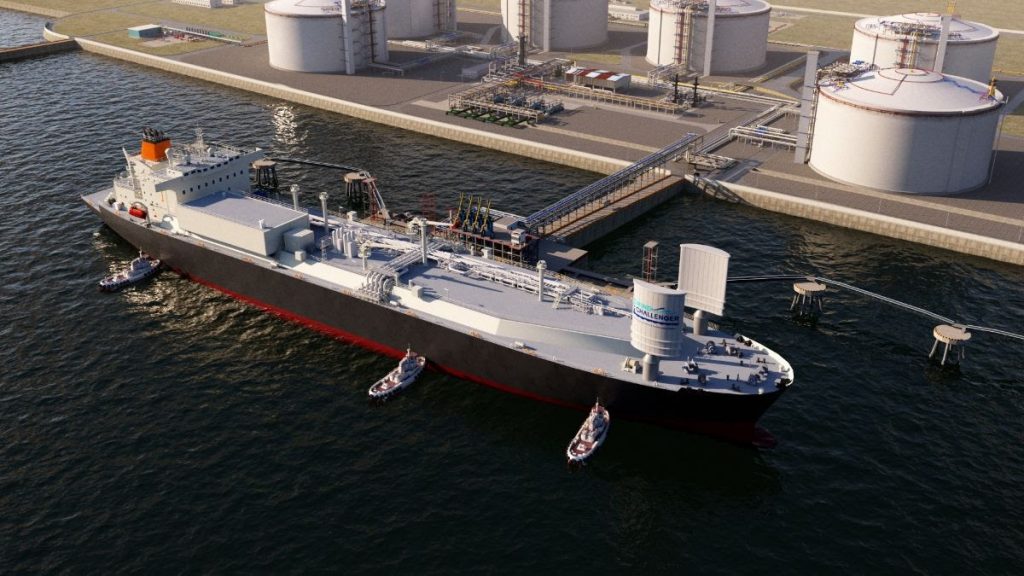ClassNK has issued an Approval in Principle (AiP) for the membrane-type LNG carrier installed with the ‘Wind Challenger’, a hard sail wind propulsion system. The ship is jointly developed by Mitsui O.S.K. Lines, Ltd. and Hanwha Ocean Co., Ltd. This marks the world’s first AiP for an LNG carrier equipped with a Wind-Assisted Propulsion System (WAPS).
As a solution for responding to the environmental regulations and fuel cost reduction, the implementation of wind-assisted propulsion systems is in progress. When such systems are installed on board ships, it is expected to be effective in reducing CO2 emissions, etc., by taking advantage of wind power. However, depending on the scale and specifications, they also pose risks to ship’s structure, crew on board, and the surrounding environment.
To provide safety guidance for addressing these risks appropriately, ClassNK published the ‘Guidelines for Wind-Assisted Propulsion Systems for Ships’ as a standard for wind-assisted propulsion systems and ships equipped with these systems.
ClassNK carried out a review of the conceptual design of the ship based on its ‘Rules and Guidance for the Survey and Construction of Steel Ships’, ‘Guidelines for Wind-Assisted Propulsion Systems for Ships (Edition 2.0)’, and examined the result of required risk assessment. Upon confirming they comply with the prescribed requirements, ClassNK issued the AiP.
Tags: Class NK, LNG, Propulsion



Recent Posts
Babcock’s LGE Business Secures Contract for Marine Ammonia Fuel System to Advance Shipping Decarbonisation
Associated Terminals Deploys Liebherr’s All-Electric Cranes in Landmark Move Toward Cleaner Cargo Handling
Sanmar delivers fully electric emissions-free tug to major global operator Svitzer
Kolkata Dock deploys first-ever electric mobile cranes
ONGC orders two ethane carriers from Mitsui O.S.K. Lines
IndianOil to Commission India’s Largest Green Hydrogen Plant by 2027
IMI Greater Noida Signs MoU with IME (I) to Launch A New Student Chapter
GCMD Completes World’s First Pilot Demonstrating Full Carbon Value Chain from Ship-Captured CO2 in China